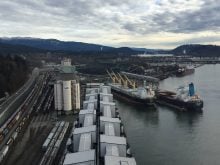WHISTLER, B.C. – Young aboriginal populations rooted in their own communities represent a largely untapped labour resource for rural Canada, says a British Columbia aboriginal corporate trainer.
Bob Joseph, the founder of Indigenous Corporate Training in Port Coquitlam, B.C., which offers cross cultural training to companies, has come up with strategies to help include more aboriginals in local economies.
Joseph, who belongs to B.C.’s Gwa-wa-aineuk nation on Vancouver Island, told community leaders assembled for the third Pan Canadian community futures conference in Whistler in June that employers need to start with an improved understanding of aboriginal culture and diversity, citing the more than 600 bands within Canada.
Read Also

Malting barley exporters target Mexican market
Canada’s barley sector is setting its sights on the Mexican market to help mop up some of the lost demand from China
In British Columbia, that includes 197 bands, seven languages, 30 dialects and 30 tribal councils.
Joseph called aboriginals an eco-nomadic people who are here to stay.
“They’re not moving around with the next big economic opportunity; there is always going to be that core group of people who like where they are in the world and they aren’t going anywhere,” he said.
As examples, he cited a band on Vancouver Island that stayed put after
fibre supplies for forestry companies dwindled.
While labourers often leave more remote areas in search of jobs closer to the cities, aboriginals might provide labour for sectors such as forestry, agriculture, mining and hydro electrical projects.
Joseph suggested flexible and seasonal employment opportunities, including full-time work for those who want it and different shift options for those who wish to pursue traditional hunting and fishing activities.














